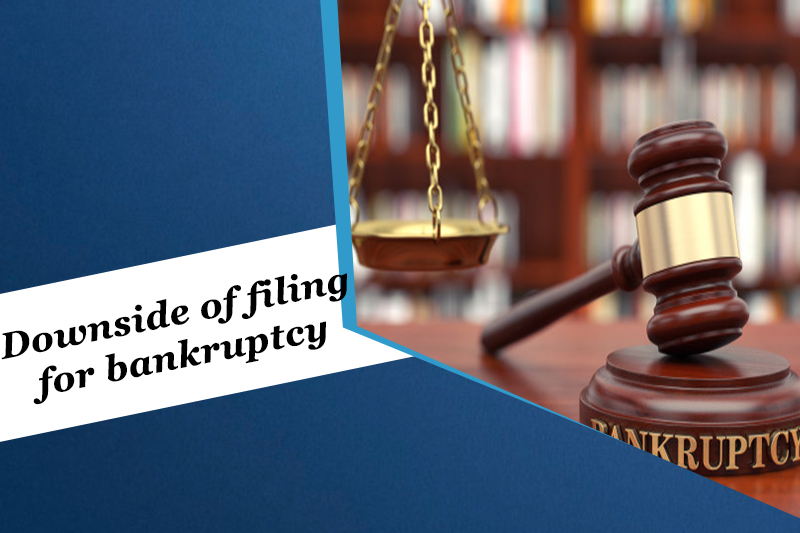What is the downside of filing for bankruptcy

February 04, 2021
About Bankruptcy:
In terms of clearing the debts, filing bankruptcy is one of the best options. However, we have to keep in mind that it will also have some serious consequences. Here, in this article, we will discuss some of the disadvantages associated with filing for bankruptcy.
Sometimes a person loses property that he or she would otherwise have been able to keep because of filing bankruptcy too early, or that they have to file a different type of bankruptcy that is not in their best interests.
Disadvantages of Bankruptcy:
Here, in this article, we will discuss the disadvantages of bankruptcy. Before, filing for bankruptcy, it is better to keep the following points in mind:
- The bank account will be frozen once the bankruptcy has been approved which will be a concern if a person is making payment through Direct Debit.
- The Official Receiver dealing with your bankruptcy will be in control of the property or any other assets.
- The home may need to be sold to release equity to pay the creditors.
- It will be difficult to work in certain professions as some industries do not allow bankrupt individuals to work in their companies.
- The bankruptcy will be listed on the Insolvency Register, as well as in the financial paper “The Gazette”.
- The other person will become solely responsible if you have joint debts.
- The bankrupt person has to abide by several strict restrictions, which include being unable to borrow more than £500 credits without disclosing to the lender about bankruptcy and being unable to act as a director or manage a business of a company without the permission of the Court.
- If after all income and expenses, a person has any disposable income, the Official Receiver will review the finances and the disposable income will need to be paid into an Income Payment Agreement (IPA) which can last for up to three years.
- Furthermore, during the bankruptcy period, they will face certain restrictions, including not being allowed to act as a director of a company, Create, manage or promote a company and work as an insolvency practitioner.
- Some kinds of debts are not possible to get discharged by bankruptcy. Alimony and child support, student loans, criminal restitution and fines, and any debts acquired through fraud are few examples of Non-dischargeable debts.
- Due to Bankruptcy, tax refunds from the state, local, and federal can be denied and bankruptcy filing can make it difficult to get another loan or mortgage for many years.
- The bankruptcy stays on a person’s credit report for a few years because of which credit score will be impacted. You will more than likely have a significantly higher interest rate attached even if you do secure a loan or a credit card.
- If a person owns a business, it could be closed down and its assets sold. The bankruptcy status will become public knowledge, whether he/she likes it or not.
Conclusion:
Finally, filing for bankruptcy is not cheap. The cost of bankruptcy can add up with filing fees, bankruptcy trustees’ fees, credit counseling fees, and attorney fees. Therefore, it is always better to think twice before filing bankruptcy. Contact Doshi Outsourcing, for all administrative services for your bankruptcy business.


